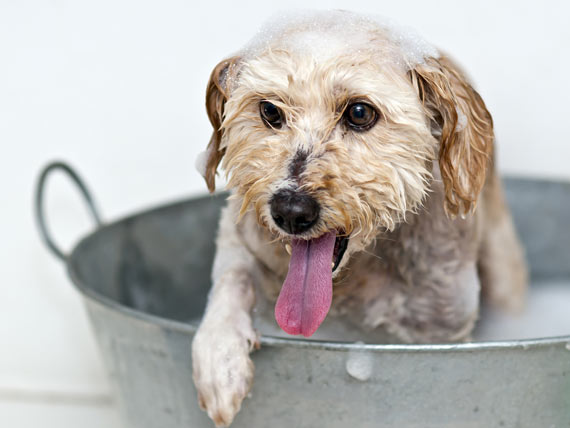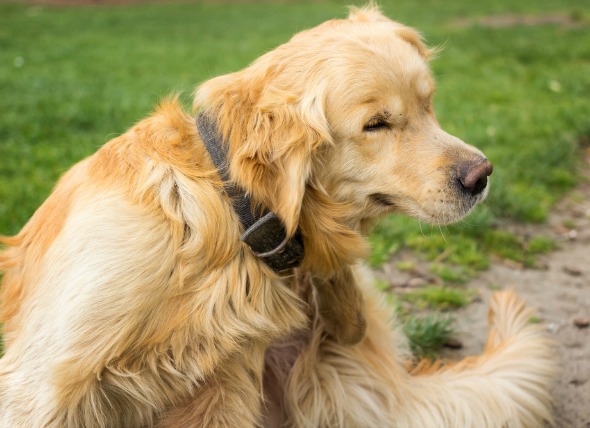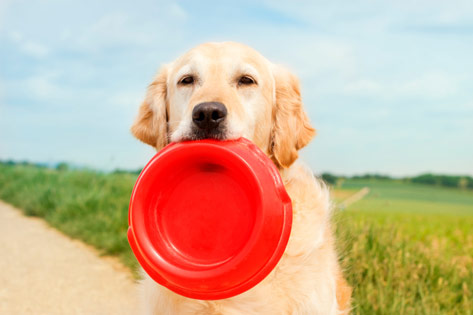Finding an experienced dog trainer can play a significant role in improving the friendship you share with your pet. Your canine will learn how to respond properly to your commands; he'll learn to behave according to the rules you set; and he'll become socialized to other people and their pets. These are the hallmarks of a friendly canine whose company and companionship you'll enjoy for years.
A lot of owners who have never attended professional dog training classes are uncertain regarding what to expect. In this article, we'll clarify what lies ahead. First, we'll describe some of the preliminary steps you'll need to take. Then, we'll explain the differences between group and private training sessions. Regardless of whether you're enrolling your pooch into basic obedience classes or seeking help for a specific behavioral issue, the following will provide a helpful overview.
Pre-Class Preparations
Prior to the first session, you'll be asked to provide proof that your pooch has received his vaccinations. This is primarily to protect other pets. Most trainers also require that you complete a waiver form that releases them from liability should your pet sustain injury during the sessions. Lastly, you'll be asked to sign an enrollment agreement. This agreement will list fees as well as responsibilities you'll be expected to fulfill.
Many trainers will recommend a certain type of collar and leash for the sessions. Purchase these ahead of time and bring them to the classes. Also, since most training systems make heavy use of dog treats to encourage desired responses, pack plenty of your canine's favorite treats. Finally, wear comfortable clothes and shoes that allow you to move freely during the sessions.
Training With Other Owners And Their Pets
This is the most beneficial setting for most dogs. You and your pet will be participating in a class with other owners and their pets. The size of the class can vary; some are as small as three people while others attract over a dozen.
There are two core advantages to attending group sessions over private classes. First, your canine will have a chance to interact with other pets and their owners. This is important for socialization. Trainers claim that exposing canines to other animals in the manner makes them more likely to be friendly to other pets and people throughout their lives.
The second benefit is that group sessions offer plenty of distractions. They'll help your dog learn to concentrate on you, even while other events are happening around him. This focus pays dividends later when you need to gain his attention and compliance in busy environments (e.g. dog parks, busy intersections, etc.).
Training One On One
Many canines need - or would benefit from - private training. These sessions are usually devoted to curbing a particular behavior. The trainer will either conduct the classes within your home, or invite you to his or her facility.
An organized trainer will provide a loose outline regarding what should take place during each class. However, it's important to highlight that private classes are ideally suited for accommodating a pace that improves your dog's progress. There is no pressure to rush the training since there are no other owners to whom the trainer must answer. Thus, the training can be highly-tailored to your canine's needs.
Making The Most Of The Sessions
Nearly all trainers ask attendees to continue doing specific exercises at home between classes. Doing so reinforces what was taught in the class, so your canine won't forget. It only requires one daily 10-minute session; keeping them short prevents your dog's attention from drifting.
When you and your canine return to the training classes, ask the trainer to clarify anything about which you're confused. If you would like to know why a given method is recommended, ask. If you need clarification about a particular exercise so you and your dog can perform it properly, ask.
The main goal of professional training classes is to improve the friendship you share with your canine. Set realistic expectations and ask questions whenever something is unclear.

 Is it OK to Play Switcheroo with Your Pet Foods?
By Patricia Khuly, DVM
Originally published
Is it OK to Play Switcheroo with Your Pet Foods?
By Patricia Khuly, DVM
Originally published
 How Natural Flea and Tick Repellants Work
Herbs and essential oils have been used to repel insects
How Natural Flea and Tick Repellants Work
Herbs and essential oils have been used to repel insects
 Does My Dog Have Fleas?
How to Inspect and Remove Fleas from Your Dog
By J
Does My Dog Have Fleas?
How to Inspect and Remove Fleas from Your Dog
By J
 Pet Food Ingredients & Nutrients: Dogs are What They Eat
By Lorie Huston, DVM
Feeding a high quality diet
Pet Food Ingredients & Nutrients: Dogs are What They Eat
By Lorie Huston, DVM
Feeding a high quality diet
 Principles of Dog Nutrition
By T. J. Dunn, Jr., DVM
Pet nutriti
Principles of Dog Nutrition
By T. J. Dunn, Jr., DVM
Pet nutriti